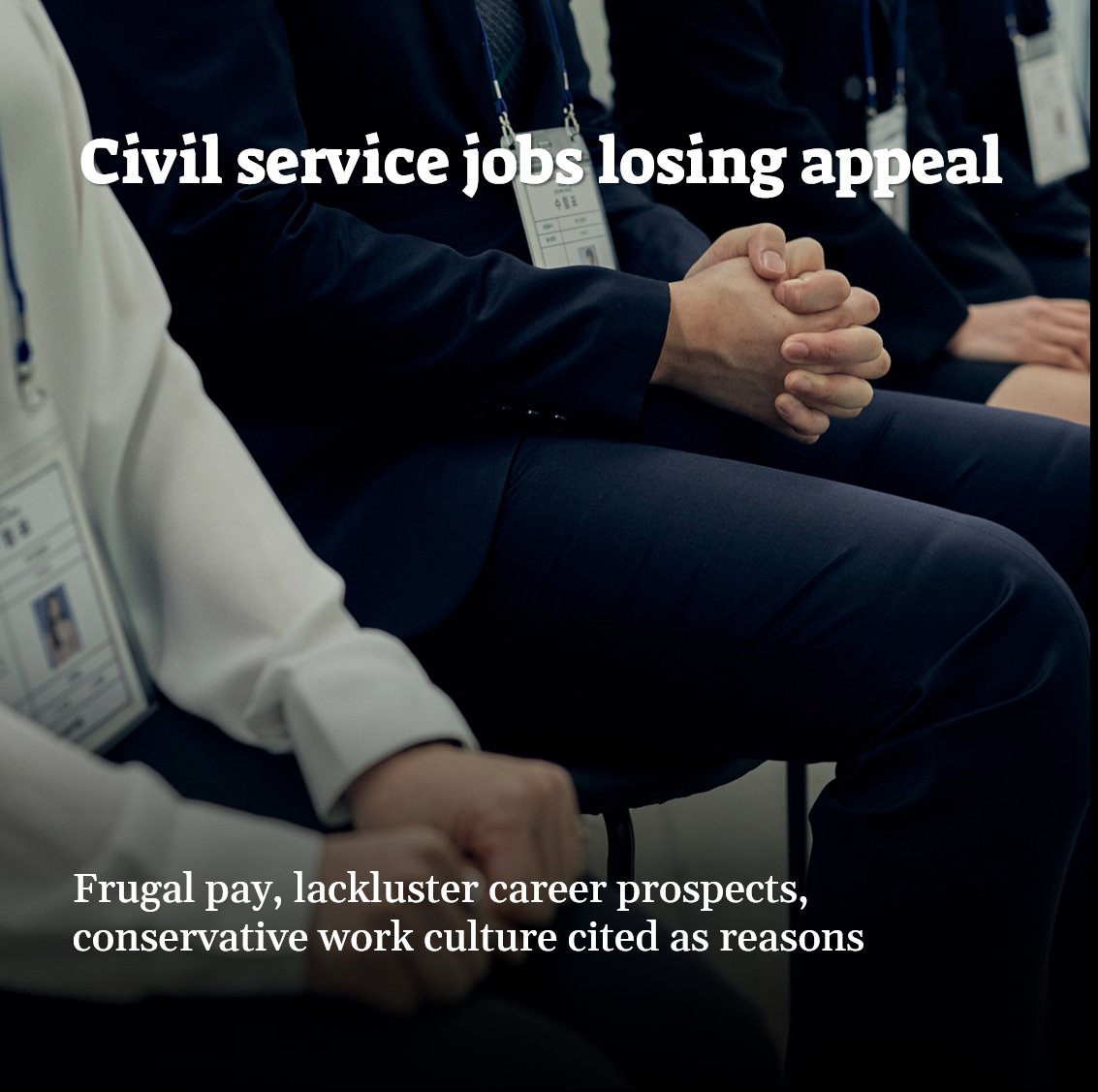 |
(gettyimagesBank) |
Civil servant has long been the most sought-after job among South Korean job seekers. Look at Noryangjin, where people all across the country cram for their civil service exams, giving birth to their own unique culture.
For millennials and Generation Z, however, there have been several signs that civil service jobs are losing their appeal.
New data released Thursday by the Ministry of Personnel Management confirms this trend. The competition ratio for the grade 7 positions came to the lowest in 43 years, while the figure for the lowest level of grade 9 seats fell to a level that the country hasn’t seen in the past 21 years.
According to the ministry, some 33,527 applicants will sit the first round of the civil service exam to be held on July 23, vying for a total of 785 vacancies in grade 7, resulting in the competition ratio of 42.7:1. This is a drop by more than 10 percent from 2021’s 47.8:1.
Job seekers’ waning interest is more apparent in the grade 9 positions.
In 2013, nearly 75 applicants competed for one spot in the lowest rank of the civil service, but this is now down to below 30 applicants per spot this year.
Job market watchers say that in the past, job security and pension benefits were deemed enough to offset the perceived disadvantages of public sector jobs like frugal pay, lackluster career prospects and a conservative work culture. But pension reform in 2015 has apparently tilted the scale against government jobs. The reforms essentially meant contributors would be paying more, while receiving less and later.
Ministry data shows that the basic salary for grade 9 officers starts at 1.69 million won ($1,345) a month, although most take home more than that owing to various allowances and bonuses.
In surveys conducted biannually by Statistics Korea, government jobs topped the list of jobs preferred by Koreans aged 13 to 34 three times in a row until 2019. In the 2021 poll, it was down to third place after big-name conglomerates in first place and public enterprises in second.
In the same 2021 survey, 38.7 percent of respondents chose pay as the most important factor when choosing a job. Those who chose job security made up 24.8 percent.
By Korea Herald (
khnews@heraldcorp.com)




![[Herald Interview] 'Trump will use tariffs as first line of defense for American manufacturing'](http://res.heraldm.com/phpwas/restmb_idxmake.php?idx=644&simg=/content/image/2024/11/26/20241126050017_0.jpg)

![[Health and care] Getting cancer young: Why cancer isn’t just an older person’s battle](http://res.heraldm.com/phpwas/restmb_idxmake.php?idx=644&simg=/content/image/2024/11/26/20241126050043_0.jpg)

![[Graphic News] International marriages on rise in Korea](http://res.heraldm.com/phpwas/restmb_idxmake.php?idx=644&simg=/content/image/2024/11/25/20241125050091_0.gif)